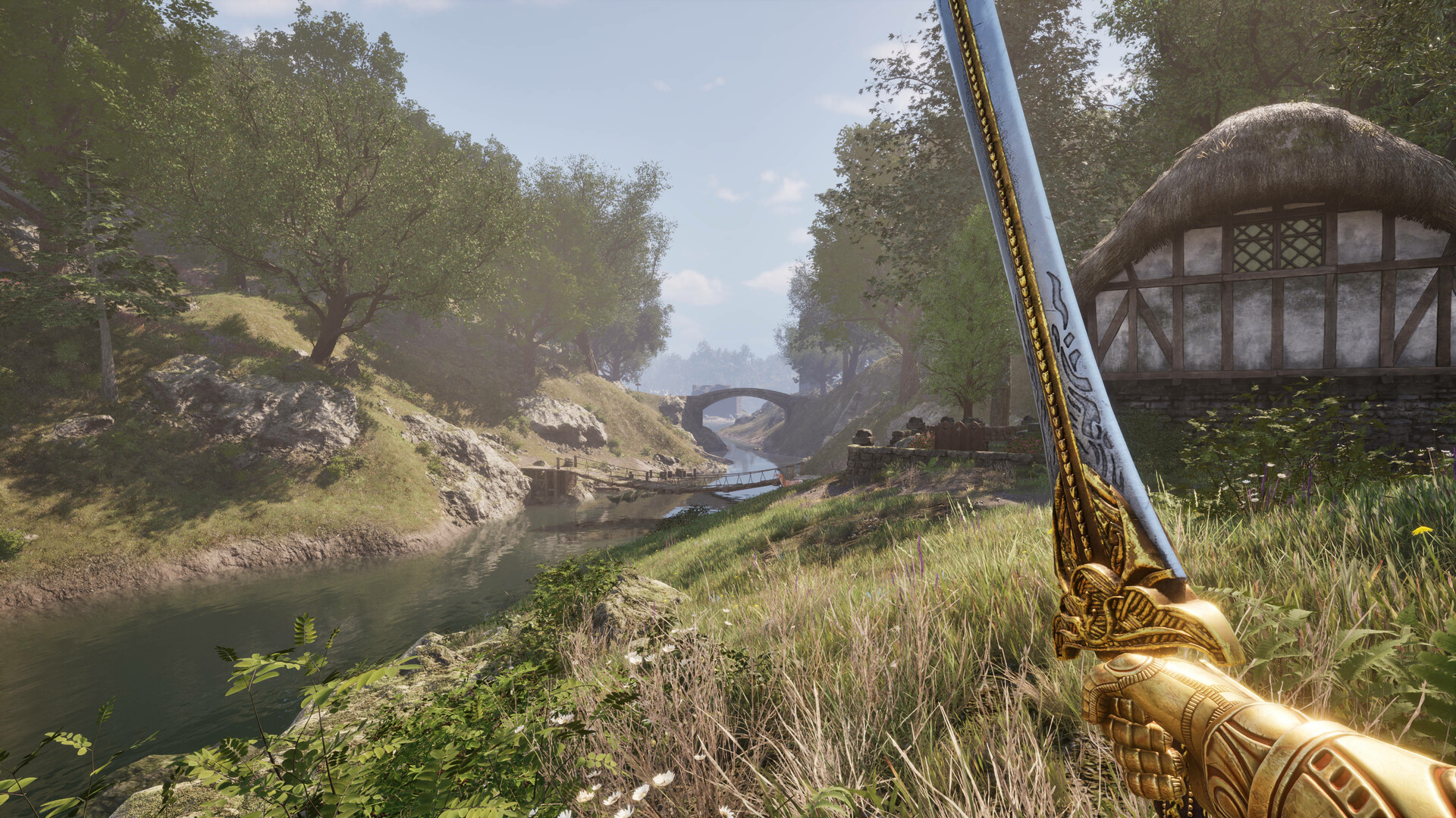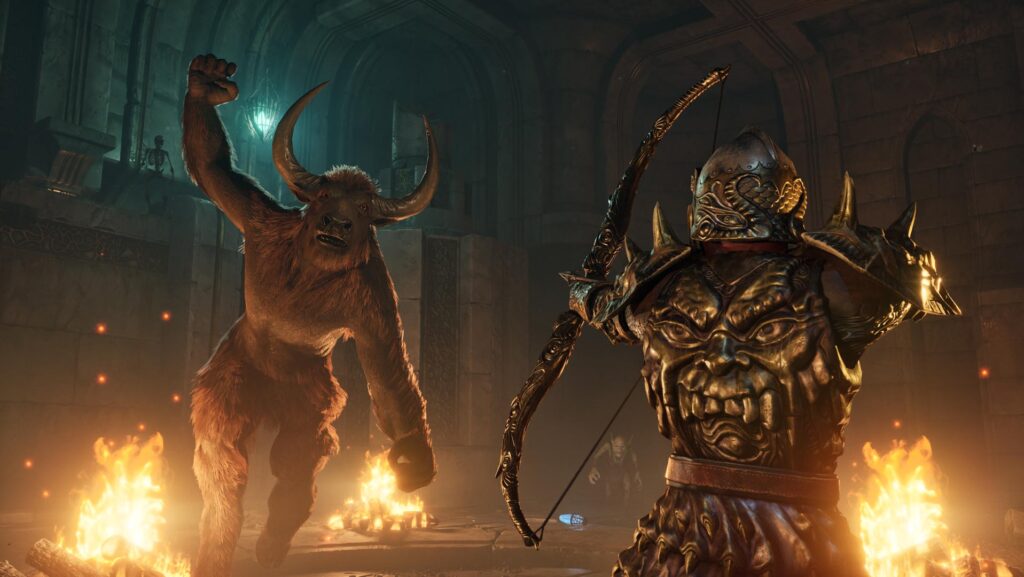When it launched in 2011, The Elder Scrolls 5: Skyrim was deemed an instant masterpiece (and for good reason), with the open world action RPG somehow outmatching and outdoing even the unprecedented highs of its predecessor. That wasn’t a mean feat either. After all, The Elder Scrolls 4: Oblivion was, in its own right, an unabashed masterpiece, a seminal title that served as a landmark RPG, and a foundational experience that showed what an open world game of the nascent HD era could look and play like. For Skyrim to deliver an experience that scaled heights that were somehow even loftier wasn’t an achievement that could be overlooked- and, of course, it wasn’t.
But though Skyrim built and improved upon the genre-defining foundations of Oblivion in countless ways – from the design of the open and how dynamic and alive it felt to how much more engaging exploration was to the environmental diversity it boasted – there were at least a handful of areas where it felt either like a lateral step, or outright a backwards one- the most prominent being its progression mechanics. Though calling Skyrim’s progression systems outright bad would maybe be a bit of an unfair assertion, it’s safe to say that they did feel like a regression from what the series had been known for in the past.
The games industry is, of course, been collectively revisiting Oblivion (or visiting it for the first time, depending on your level of engagement with the original) thanks to Bethesda and Virtuos’ recently released The Elder Scrolls 4: Oblivion Remastered, which has only cemented that notion further for many. Barring some tweaks and adjustments made for balancing purposes (all of which were, to be fair, definitely necessary), Oblivion Remastered brings over the original game’s progression and customization mechanics largely unchanged, and in doing so once again proves the fact that, purely as an RPG, the 2006 title (and its 2025 remaster) has more going for it than the game that would follow-up on it half a decade later.
First, let’s talk about the parts of Skyrim’s progression systems that do work really well-chief among them being the sheer build variety that the game touts. Skyrim is the sort of RPG that doesn’t like getting in the player’s way for pretty much anything, and instead encourages absolute freedom and agency. Its RPG mechanics ensure that players are rewarded for playing however they want to play, which is something that just keeps feeding into itself across the entirety of the game. The more you play a certain way, the better you get at it, which creates a constant cycle of feedback and positive reinforcement, further emphasizing the game’s free-flowing nature.
That, of course, is the way most Bethesda Game Studios RPGs tend to be structured, and Skyrim is as good an implementation of that formula as any. What, then, is it about the game exactly that makes it a more scaled back RPG experience than its predecessors, and Oblivion in particular? Well, it’s the plain and simple fact that beyond that core system, which works very similarly in both games, surrounding progression mechanics in Skyrim feel much more pared down. Take, for instance, the fact that the game replaces Oblivion’s stat upgrades upon levelling up with a perks system. Where Oblivion has players investing points into multiple characteristics and attributes each time upon levelling up, Skyrim instead simply asks you to invest perk points in a multitude of skill trees. Compared to Oblivion’s upgrade mechanics, which afford a much greater and more granular degree of control over how you want your character to advance and grow, Skyrim’s perks system ends up feeling a little bit more restrictive and, as such, less rewarding.
Interestingly enough, by giving players greater control over how to progress, Oblivion ends up placing more restrictions on the player. For example, if you’re trying to go for an archery build, every time you level up, you’re going to have to make sure that you keep investing points in the attributes that govern your bow and arrow skills. No, you don’t have to do so every single time you level up, but every time you make the decision not to, you run the risk of letting that attribute fall behind, which can be potentially damaging to your build. But that’s exactly the point- like a classic RPG, Oblivion makes you decide what you want your build and play style to be, and then gives you constant and concrete feedback with tangible results to let you know that your decisions have actual weight.
Technically, Skyrim does end up offering greater freedom than Oblivion that way, because the former’s progression systems ensure that you never feel like you’re locked in to any one path or build, instead letting you fluidly switch up your play style however and whenever you want. That said, by completely eliminating things such as classes or attributes and instead boiling so much of the upgrades down to just a simple perks system, Skyrim simplifies and streamlines things a little bit too much.
You obviously have to acknowledge the fact that Oblivion itself scaled back on Morrowind’s RPG mechanics in its own ways, but as its newly released remaster proves all over again, it still definitely felt like an actual, classic RPG experience. In comparison, Skyrim, for all of its many, many strengths, felt more of an action adventure experience that also had healthy dollops of RPG elements and mechanics sprinkled in. Very much by design, the 2011 title makes it possible for players to have minimal engagement with its progression systems, to the extent that if you so wish, you can pretty much ignore them altogether. That is very much not the case where Oblivion is concerned.

To be entirely fair to Skyrim, the systems that it does have in place work perfectly well for what the game is. Those who do want an RPG experience can definitely get one out of Skyrim, even if it may not be as nuanced or involved as some of the genre’s more complex offerings, and playing around with its free flowing nature and the bevy of options it has available in terms of different builds and play styles hardly ever stops being fun. That, after all, is exactly what makes it the sort of game that you can invest literally hundreds of hours in. But though Skyrim may be a better and more compelling package overall than its predecessor, purely as an RPG, it’s perhaps not too controversial to suggest that Oblivion has it beat.
In fact, you could easily argue that maybe with the exception of Fallout 3 (which is also debatable), Oblivion is a better and more engaging RPG than any other game that Bethesda Game Studios has put out since then. From Fallout 4, which was painfully streamlined and limited in this department, to Starfield, which did make significant improvements but still didn’t manage to get back to the standards that the studio had once set with its RPG systems, mostly all of BGS’ post-Oblivion games have failed to outdo the 2006 classic’s player progression mechanics. If nothing else, that is testament to the timeless nature of its design.


